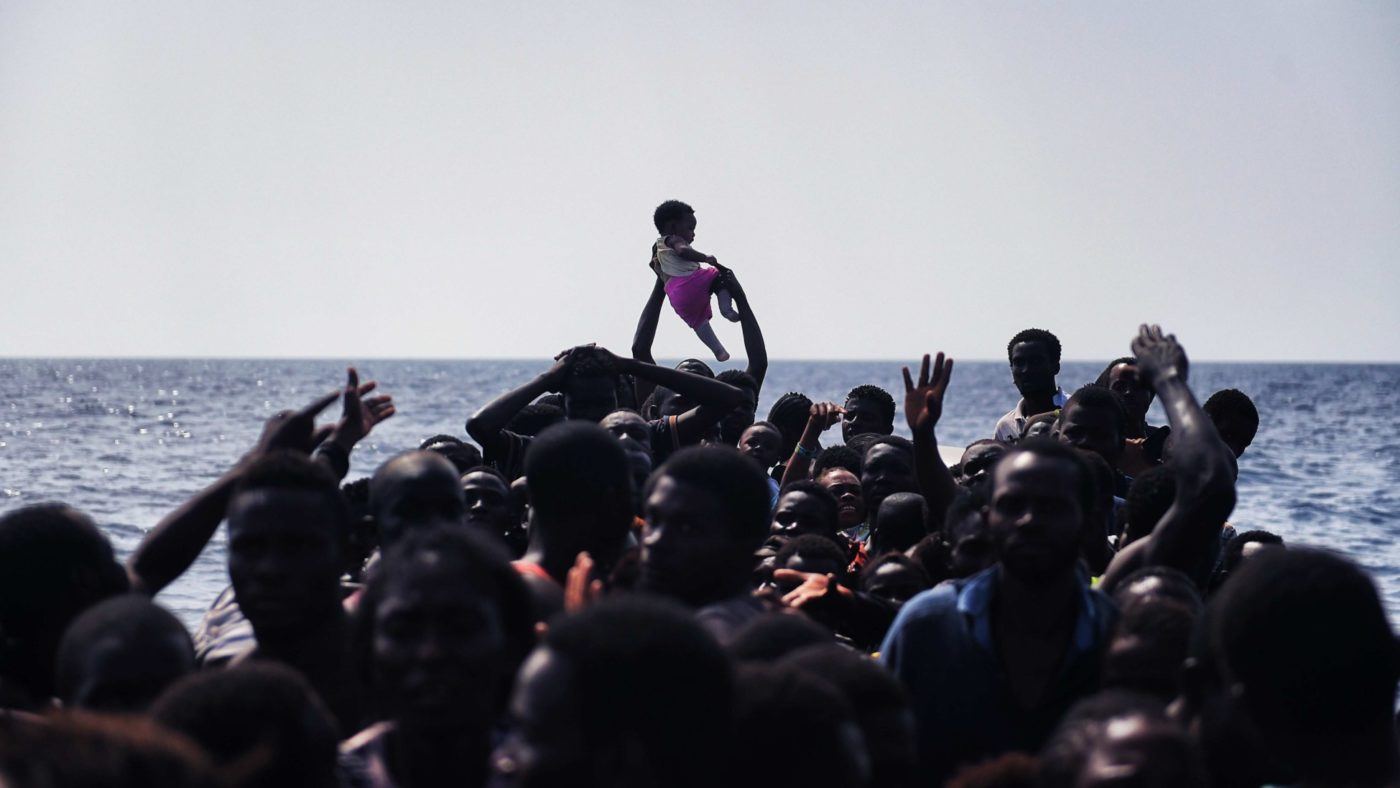The European Union’s migration policy is broken – on that most commentators agree. The EU’s failure to deal with mass migration from Africa and the Middle East has led to thousands of drownings in the Mediterranean Sea and has undermined, perhaps fatally, Europe’s much vaunted freedom of movement.
Unlike the United States, which is separated from the Eastern Hemisphere by two massive oceans, Europe is easily reachable from the Middle East and North Africa (MENA). In addition to the migrants from MENA, Europe is an attractive destination to people from sub-Saharan Africa, Central Asia and even the Far East.
In the coming decades, these non-European populations will grow in numbers – Africa alone will be home to over 2 billion people by 2050 – as well as purchasing power. Many of the non-European youths, who will have learned about Europe’s relatively high living standards from the internet and television, will try to reach the continent in hope of a better life.
Currently, people who reach European soil by, for example, crossing the Mediterranean Sea, are supposed to be processed in the country of their arrival. That country has the task of separating refugees from, for example, war-torn Syria (whom the EU is expected to welcome) from economic migrants from, for example, Pakistan (whom the EU is expected to turn back).
Neither Greece nor Italy, which have received most of the migrants so far, has the necessary resources to process the vast numbers – a task made all the more difficult by the fact that many simply throw away their passports and claim to come from Syria. The overwhelmed authorities simply wave them through in hope that they will leave Greece and Italy for greener pastures in Germany and Sweden.
The EU’s failure to protect its external frontier has effectively ended the free movement of people within Europe, with barbed-wire fences springing up between countries in an attempt to keep the migrants at bay. It has strained the relations between Eastern EU members, who refuse to accept migrants, and Western EU members, who would like to offload theirs in the East.
The cultural clash between the EU’s liberalism and secularism on the one hand, and unacceptable behaviour (e.g., sexual harassment of women) by many of the migrant men on the other hand, has massively increased social tensions. And, the EU’s overarching dysfunction has only served to incentivise more people to attempt the treacherous Mediterranean Sea crossing.
The situation worsens year after year and it’s obvious that something must be done to disuade migrants from coming, but what? Perhaps the EU could learn from Australia’s controversial, but highly effective, approach to migration.
Australia used to process migrants through the court system, which adjudicated between genuine refugees (from, for example, conflict zones in Asia) and economic migrants. (To repeat, the EU system is supposed to work like that, but does not, because neither the Italian nor the Greek legal system can handle the case load.) But at the turn of the millennium a spike in migrants trying to reach Australia by boat led the government to adopt a new policy, whereby people who arrive by sea are placed in offshore-detention facilities on two Pacific Island nations, Nauru and Papua New Guinea.
Would be migrants have realised that a dangerous high-seas crossing to Australia is no longer a guarantee of residence in the country and the number of crossings has dropped off. It is not an optimal solution. Conditions in the holding camps are often miserable. But on the other hand, people-smuggling and drownings have been drastically reduced. Furthermore, Australian officials can now process asylum applications in an orderly manner. Last, but not least, Australians feel in control of immigration and are, consequently, willing to tolerate higher levels of legal immigration.
Why not implement an Australian-style migration system in Europe? A government of a North African country (Algeria, Libya and Tunisia spring to mind) should be incentivised with foreign aid money to lease a few square miles of their territory to the EU for the purpose of establishing refugee camps and processing centres to which all illegal migrants to the EU – whether they reach the European shore or not – would be automatically sent. The EU would be responsible for housing them, caring for them, protecting them and adjudicating their eligibility for permanent settlement in the EU.
If such a policy is adopted, mass unregulated migration to Europe – which is bound to pick up steam with time – will lose its appeal. The smugglers will lose customers and fewer will perish in the Mediterranean Sea. The Europeans will, once again, feel in control of their immigration policies and social tensions should ease. As in Australia, offshore holding centres will not provide an optimal solution to the migration crisis. But they will provide the best solution available.
As peak crossing time approaches in the Mediterranean, and with vigilante boats setting sail to deter immigrants, surely it’s time to start thinking radically.


